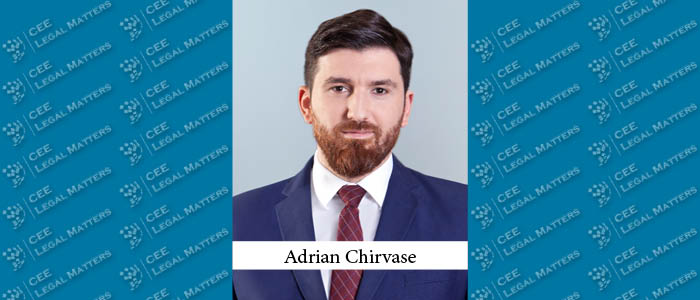The back-and-forth on the statute of limitations between Romania’s Constitutional Court and the CJEU, with the country’s judiciary stuck in the middle, is at the top of the agenda for Popescu & Asociatii Partner Adrian Chirvase.
“Following a July 2023 judgment from the European Court of Justice regarding the application of the statute of limitations in the EU community, in January 2024 a new ordinance was issued in the same respect,” Chirvase begins. The new CJEU document “once again analyzes the possibility for national courts of law to sidestep the application of a previous Romanian Constitutional Court decision – which effectively shortened the statute of limitations in some cases and would normally be mandatory for any Romanian court of law. The main concern here is what would happen with the files currently on the dockets of the courts,” he explains, “but there are many other related challenges and heated debates on the subject.”
So far, Chirvase continues, “the CJEU ordinance does not bring any modification in the standard set forth by the previous judgment, and there shouldn’t be any change in the trials where a final decision was reached under the previous interpretation. Basically, the CC decisions ended up overturning Romania’s judicial system – since we didn’t have the awareness to deal with this before internally – so a national court of law asked the CJEU. The resulting decision is of interest to all the EU members.” For him, there’s also a silver lining, “proof that we have smart people in the system: the wide majority of decisions issued by Romanian courts before the CJEU decision stayed the same afterward. Practice has not changed fundamentally,” he emphasizes. “With very few exceptions, the finalized trials remained final, and the January ordinance will be no different.”
Moving on to provide some context, Chirvase notes “we’re all affected because of the very complicated year that’s in front of us – we have an election year – and we already see an increase in the activity and a shift in the tactics of the local prosecution bodies, such as the National Directorate for Anticorruption.” For Romania’s internal judicial politics, he explains, “the NDA is a key player, handling lots of important files. Even when its files don’t concern the main players on our political stage, they may involve companies or persons with close ties with the political spectrum.”
“Nowadays, the NDA does not sustain the same public communication campaign that used to be the norm between 2014 and 2020. They communicate more rarely and give out less information – which is actually a sign of normality,” Chirvase explains. “They don’t need to praise themselves or their work in the early days of a case: much better than the oversharing they used to do. And it seems to be a consistent trend for the NDA leadership to discuss cases only when they reach final decisions.” And while that means less insight into the NDA’s work, he believes its “activity is in full swing, and might still pick up pace.”
And other authority bodies are following suit, Chirvase reports. “The National Competition Directorate is also increasing its activity. As is the National Authority for the Protection of Consumers. We have a lot of clients that are complaining about the overreaching practices of this authority – significantly more than we used to,” he notes. “Everyone is putting that down to a difficult election year, with those authorities having to bring results to the table – maybe to meet a quota of fines, cases, and sanctions; or even needing to gather money for the national budget. So, there are, of course, questions as to the lawfulness and solid grounding of those decisions, which ultimately end to being clarified by the courts of law.”






















